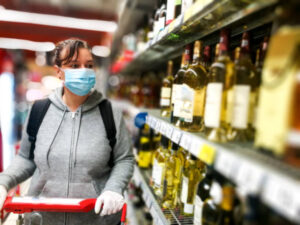Coordinating International Efforts to Promote Wellness Worldwide
The health of populations everywhere has benefitted from collaborative projects spanning national borders. This paper overviews prominent initiatives fostering medical progress on a global scale.
Major Organizations Leading the Charge for Global Healthcare
WHO Takes on Tasks to Safeguard Societal Health
GAVI Supports Nations’ Battles Against Preventable Disease
The Global Fund Mobilizes Resources Toward Ending Epidemics
This section introduces several influential actors driving international health cooperation. The World Health Organization oversees the monitoring of risks and provides guidance. Meanwhile, GAVI equips countries with vaccination supplies to shield communities. In addition, the Global Fund pools donations assisting the struggle against HIV/AIDS, tuberculosis, and malaria.
Mass Vaccination Drives Shield Millions From Ills
Widespread Immunization Has Crushed Smallpox and May Soon Do the Same to Polio
GAVI Campaigns Inoculate Children, Preventing Suffering and Future Treatment Costs
Ongoing Challenges Could Undermine Gains if Surveillance and Outreach Are Not Sustained
This part examines immunization programs’ impacts through case studies. It celebrates smallpox eradication and polio’s imminent defeat. Efforts led by GAVI have also fortified populations against preventable diseases. However, some regions remain vulnerable, necessitating continued vigilance.
Confronting Three Widespread Tormentors: Progress and Problems Posed
Anti-retroviral Access Has Prolonged Lives for Millions With HIV
Tuberculosis Treatment Has Improved Yet Drug Resistance Persists
Malaria Mosquito Control Has Cut Deaths But Climate Shifts Threaten Progress
Here, the focus shifts to successes in fighting and controlling HIV/AIDS, TB, and malaria via Global Fund support. Widespread access to anti-HIV drugs has allowed normal life expectancy. TB treatment advances require sustaining. Meanwhile, climate changes endanger gains versus malaria yet innovative measures provide hope.
Strengthening Basic Infrastructure Where Health Resources Are Scarce
Telehealth Brings Expertise to Isolated Areas Lacking Clinics
Grassroots Partners Foster Preventive Actions and Primary Care Access
Building Health Systems Resilience Against Disasters and Supply Breakdowns
This portion details methods to augment primary care availability, particularly for impoverished regions. It highlights the potential of telemedicine and community health worker programs. In addition, it underscores preparedness improvements in helping authorities respond to crises.
Safeguarding Global Survival Demands Unified Solutions and Vigilance
Pandemics Prove Cooperation Is Critical for Every Nation’s Defense
Development Inequalities Undermine Resilience—Political Will Can Change This
In conclusion, recent events demonstrate health security necessitates international solidarity. Although disparities persist, political commitment to equitable progress nurtures well-being for all. Coordinated determination through global health initiatives can fulfill the vision of wellness worldwide.
Shielding the Innocent: The Triumphs and Trials of Mass Immunization Projects
Vaccination campaigns have salvaged untold lives by preventing infectious scourges from claiming societies’ most vulnerable members. Through coordinated distribution of life-saving immunizations, initiatives like Gavi have transformed public health outcomes across continents. Notable early victories harvesting low-hanging fruit inspire continued commitment to universal coverage despite lingering barriers.
Smallpox eradication served as proof that targeted vaccination programs could purge pathogens from the planet. Similarly, polio now hovers on the verge of extinction thanks to rigorous international collaboration mobilizing resources and political will. While challenges persist in reaching every child, the development of novel thermostable vaccines and drones facilitating access to remote regions energizes efforts toward ultimate polio defeat.
Beyond polio and smallpox, the widespread introduction of pentavalent and pneumococcal vaccines helped avert millions of deaths from diseases like diphtheria, hepatitis B, and bacterial pneumonia. Gavi subsidizes these formulations for dozens of poorer nations, strengthening immunological defenses protecting future generations. Regular mass vaccination campaigns coordinated by ministries of health have routinized lifesaving protection against measles and rubella as well.
Nonetheless, obstacles endure from war to climate upheavals disrupting cold supply chains to underfunding threatening maintenance of gains. Conflict zones pose particular difficulties in overcoming suspicion to reconnecting severed community trust. Monitoring resistance requires constant vigilance as herd immunity thresholds shift. Commitment to equitable progress makes overcoming such hurdles incumbent on all aiming to realize health for humanity.
Confronting Giants: Progress and Persisting Predicaments in Battling Deadly Disease Troika
The Global Fund galvanizes worldwide solidarity in the fight against three of history’s most merciless killers: HIV/AIDS, tuberculosis, and malaria. Thanks to the generosity of donors supporting treatment scale-up, survival rates have steadily climbed against each scourge. Still, ongoing challenges jeopardize hard-won territorial gains if complacency displaces steadfast collaboration.
The widening distribution of antiretroviral therapy has transformed HIV from a death sentence to a manageable condition for over 20 million people. Meanwhile, innovative anti-malarial medicines like hydroxychloroquine continue slashing malaria mortality rates to their lowest levels on record. Tuberculosis treatment success stories also abound with expanding access to combo drug regimens.
Despite accomplishments, an estimated 38 million people currently live with HIV as stigma and violence still marginalize at-risk groups. Additionally, emerging drug-resistant TB strains imperil control while malaria adapts to temperatures rising due to climate destruction. Poverty exacerbates vulnerability by limiting preventive measures like bednets and nutritional support strengthening immunity. Phasing out donor reliance while bolstering health systems proves imperative for sustainability as well.
With coordinated science-driven remedies, political will, and shared commitment to health equity, these epidemics can be tamed. However, ensuring care for the marginalized remains a moral test as discoveries transition from laboratories to communities. Only by prioritizing the needs of all people wherever they reside can humanity curb illness as a driver of suffering.



